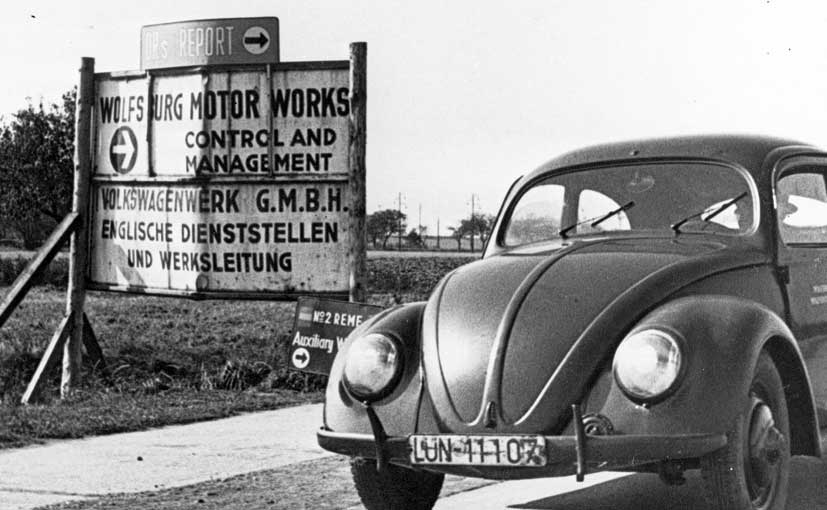Volkswagen Celebrates 70 Years of Production of Its Iconic Beetle

Highlights
It's been 70 years since the first Volkswagen Beetle rolled off the assembly line in Wolfsburg, Germany, with Hitler's 'People's Car' officially known as the 'KdF-Wagen' at the time. This was just the start of the success story, with Volkswagen selling over 21 million units of the car.
It wasn't all hunky-dory in the beginning though. The first Beetle, named Volkswagen Type 1, was produced shortly after Christmas in 1945 after World War II, and only 55 units of the particular model had been produced in total by the end of that year. In fact, by the end of World War II in 1945, just 630 units of the car - which included versions prior to the Volkswagen Type 1 - were built.
Also Read: 2015 Volkswagen Beetle Launched in India
This was due to the fact that the start of mass production was a highly-improvised undertaking, and material shortages hampered operations over the subsequent months. Yet the early vehicles were visible symbols of hope; a new beginning for the car plant under British control.

The state-of-the-art factory in what was to become the present-day Wolfsburg, built specially to make the vehicle, was integrated into Germany's wartime armaments industry, producing mainly military goods.
The site was occupied by US troops in April 1945. In June that year, the British Military Government took over trusteeship of the factory with its workforce of some 6,000 people.
Around 2 months later, the newly-appointed 29-year-old Senior Resident Officer Major Ivan Hirst acquired an initial order for 20,000 cars, thereby providing the factory and its workforce with a future, and avoiding the threat of decommissioning and dismantling.
The vehicles were intended mainly for use by the occupying Allies, but also to help provide healthcare services in rural areas.
The first elections to the Works Council in November 1945 - around six months after the end of the war - introduced the principles of democratic employee participation into the plant.
Although progress was being made, production remained stagnant at around 1,000 vehicles a month through 1946-47. It was only after the currency reform in June 1948 that a significant number of private buyers emerged.
Also Read: 2015 Volkswagen Beetle Review
Volkswagen's British roots remain discernible still today. It was the British who converted the factory to civilian manufacturing, and who focused on the quality of the vehicles.
They paid great attention to service and meeting customers' needs, and set up a dealer network which covered all three western zones of Germany by 1948.
The launch of exports in October 1947 marked the first step on to the international stage.
When the Volkswagenwerk GmbH company was placed in German hands in October 1949, it was in an ideal position to take advantage of the beginning of Germany's economic resurgence.
Dr. Manfred Grieger, Head of the Volkswagen Aktiengesellschaft Corporate History Department, sums it up, saying, "Volkswagen was very fortunate in that the robust Saloon (Beetle) helped the British Military Government to carry out its administrative functions, and that in Ivan Hirst, it had the right man at the helm. The skilful pragmatist gave the factory and the workforce a vision, motivating British military personnel and German workers alike to turn the languishing works into a successful market-driven business. He knew the qualities of the Volkswagen Saloon, and was able to realise them on the road."
The Beetle was a key factor in the development of democracy and mobility in post-war Germany, and subsequently found a home in many other countries, acting as an important ambassador in promoting a positive image of Germany.
Production at the Beetle's last manufacturing location outside Germany in Puebla, Mexico, was discontinued at the end of July 2003.
With over 21 million vehicles built, the Beetle is an automotive icon, with its characteristic shape recognised all across the globe.
Last Updated on December 30, 2015














